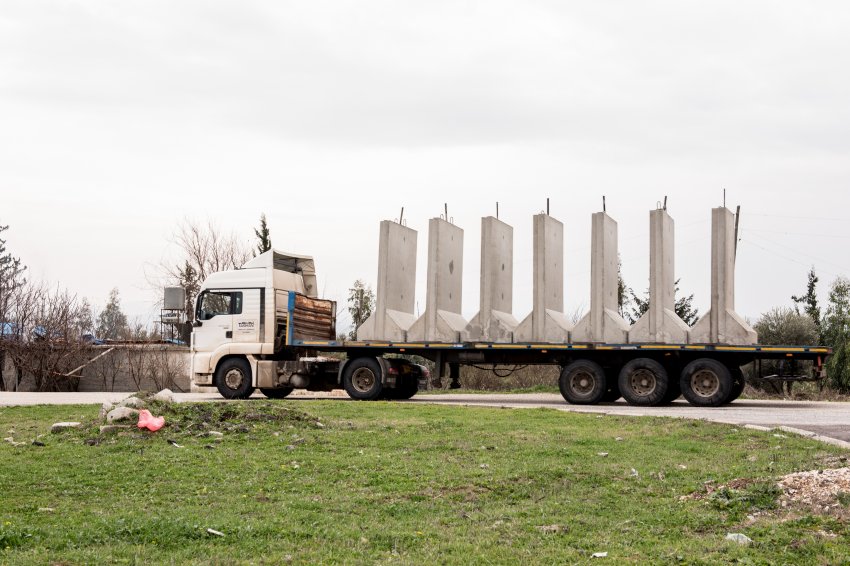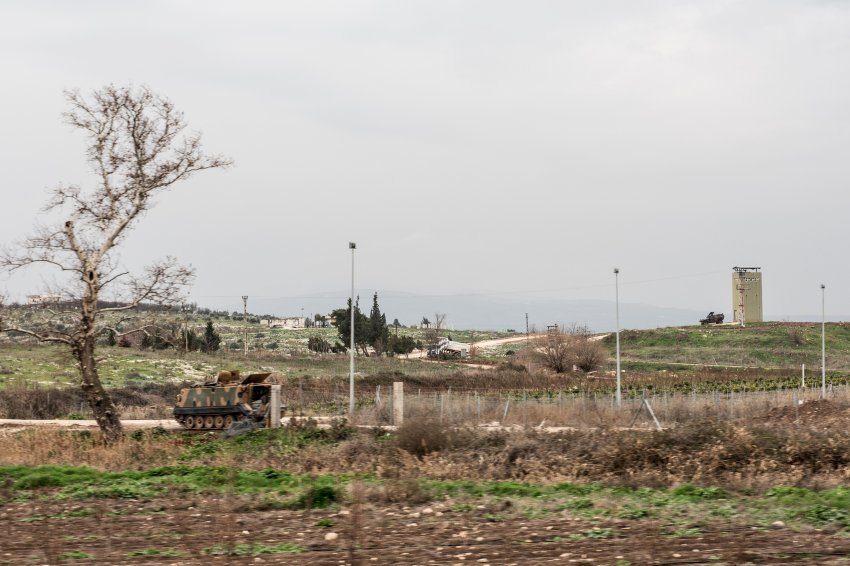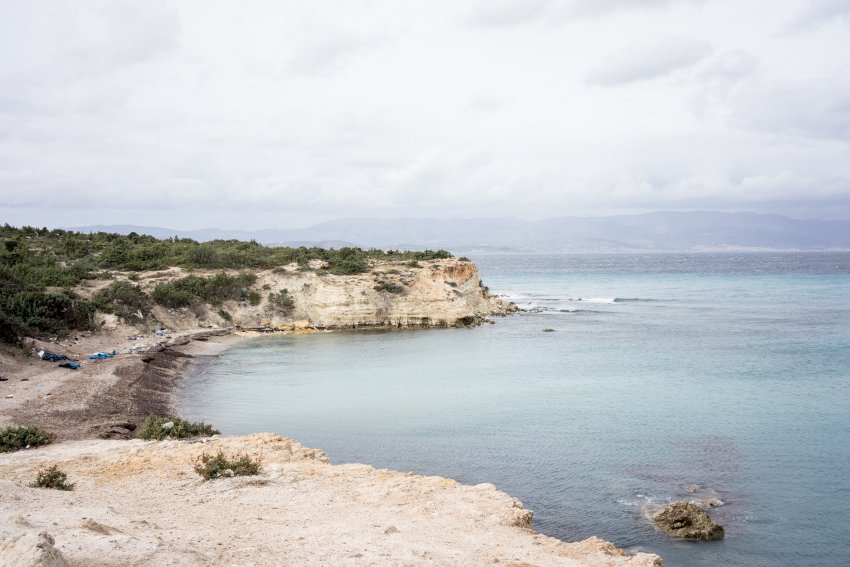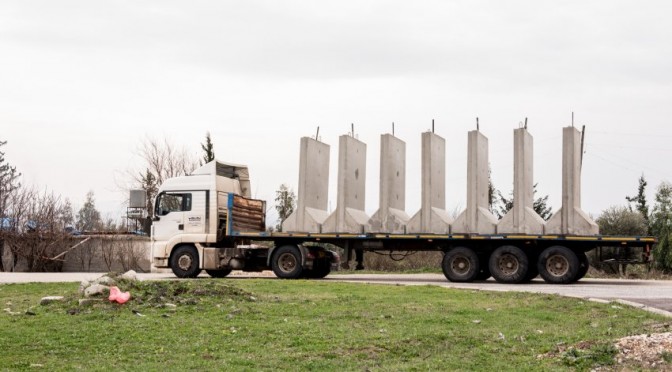Article by Mathias Fiedler, Photos by Charlotte Schmitz
One can recognize the negotiation process between the EU and Turkey in the so called “harmonization packages“ which were aimed to harmonize Turkish law with the European Union legislation[1]. The EU is more than ever before eager to collaborate with Turkey and both “partners“ agreed on a “joint action plan” concerning migration [2]. Turkey, being the most important transit country to Europe, is one of the “focal points of the EU’s externalization strategy” and the EU promised three Billion EUR for the reception of refugees. But while the EU-countries still are in disagreement on how to raise that sum, Erdoğan already stated that this amount of money won’t be enough anyway. However, the closer EU-Turkey collaboration has already had negative effects for refugees in Turkey: Refugee rights organizations stated that “more detention“ and “less reception” was one of the first consequences of the agreement [3].
Already in May 2015, a new institution was established in Turkey, the Directorate General of Migration Management (DGMM). This institution, led by the Ministry of the Interior, is now responsible for “all the procedures regarding foreigners” and was handed over by the Turkish National Police with its Foreigners’ Departments of Provincial Directorates of Security [3]. The DGMM is responsible for “visas“, “residence-permits”, “irregular migration”, “combating human trafficking” and “migration policies” in general. Furthermore it has its own research centre and manages the migration flows, and brings Turkey a step further in its transformation regarding policy toward foreigners: a consequence of the “on-going membership negotiation process with the European Union” [4]. Even the DGMM speaks about „harmonization“ on its webpage [5]. Turkey’s recent agreement with the EU, which was signed toward the end of November 2015, must be seen as another considerable move towards negotiations on a new kind of “partnership” and finally an EU membership. As Turkey’s prime minister Ahmet Davutoğlu put it some time ago: “We want to be a member of the European family” [6].
One of the most problematic aspects in this context is that the Geographical Limitation of the Geneva Convention is still in force, meaning that only European citizens can get asylum in Turkey. According to the political scientist Kemal Kirişci, the Geographical Limitation is a logical consequence of the Law on Settlement from 1934 and – “still today an important document governing immigration – [which] does not foresee the settlement of any people of non-Turkish culture” [7]. Therefore, until that law is repealed, it will not be possible to abolish the Geographical Limitation either [8]. Nevertheless, this would be an absolute precondition for EU membership to step back from such a „Turkishness“ [9]. Apart from that, there are good reasons for assuming that Turkey is keeping the Geographical Limitation in order to retain bargaining power in the ongoing negotiations with the EU.
Six out of seven Syrian refugees in Turkey don’t live in refugee camps. The number of Syrian refugees especially is still growing – at the end of 2015 there were more than 2,5 million registered refugees in Turkey [10]. Many of them have already been in the country for years, but only 1/3 of their children are visiting schools regularly and many of them are not being well paid or are only engaged in clandestine employment. Partly, one could speak about the same “discriminatory attitude” towards Syrian refugees as towards the Kurds [11]. Since 2012, one could observe “sporadic clashes between Turkish citizens and Syrian refugees”, as well as “protests against Syrian refugees” [12]. Moreover, since the beginning of January 2016, Syrians coming directly from Syria or indirectly over Jordan and Lebanon have to apply for a visa, if they want to travel to Turkey by plane or by ship. Consequently, the influx of Syrians decreased from 41,000 to 1,200 a week.
Recently, the Turkish government announced that Syrian refugees can get a work permit after staying six months in the country. However, due to an official unemployment rate of over 10%, it will be very hard for hundreds of thousands of Syrians to find regular jobs. Furthermore, the Turkish government started with the construction of a wall at the Syrian Border, in the region of Hatay in the district of Reyhanlı. The cement blocks used for the wall are three meters high. Furthermore, refugees reported violent push-backs and deaths caused by the huge military presence at the border [13].


Near Aleppo, thousands of Syrians are waiting permanently to cross the border to Turkey, but they are being blocked by Turkish authorities. Already since November 2015, Turkish police has been strictly controlling the crossing points: People trying to cross the border have been arrested and deported – in addition to push-backs. However, all this didn’t decrease the number of refugees going from Turkey to Europe: Already 60,000 refugees arrived on the Greek islands in January 2016 and hundreds died.

The same time, a de facto war has started in Turkey’s southeast. Thousands have fled the Kurdish cities of Diyarbakır, Nusaybin, Silopi, Cizre and Şırnak. The Turkish state has reacted with increasing violence and repression against critical scientists, journalists, politicians and political activists. Nevertheless, another part of the Europe-Turkey deal, continually discussed in recent weeks, is the possible nomination of Turkey as a “safe country of origin” and consequently a “safe third country” as well. The question of what Europe would do with the increasing Turkish refugees is of crucial importance.
[1] Republic of Turkey / Ministry of Foreign Affairs (2007): Political Reforms in Turkey.
[2] Read more about the deal in this article from December 2015.
[3] Aida (2015): AIDA Update Turkey: Less Reception, more Detention following EU-Turkey action plan.
[4] Republic of Turkey (2015): Provincial Directorates Of Migration Management Has Become Operational.
[5] DGMM (2015): Regular Migration and Harmonization.
[6] Bensch, Karin (2015): EU weitet Beitrittsverhandlungen aus.
[7] Suter, Brigitte (2013): Asylum and Migration in Turkey.
[8] Kirişci, Kemal (1996): Is Turkey lifting the ‘geographical Limitation’? – The November 1994 Regulation on Asylum in Turkey.
[9] Barış Ünlü (2012): “Turkishness contract“ and Turkish left.
[10] UNHCR (2015): Syria Refugee Regional Response: Turkey.
[11] See the interview with Şenay Özden in Today’s Zaman.
[12] Ahmadoun, Souad (2014): Turkey’s policy towards Syrian Refugees.
[13] Popp, Maximilian (2016): Flüchtlinge in der Türkei – Gescheitert an Europas Türsteher.
